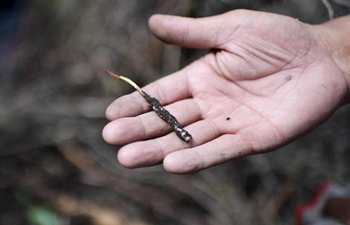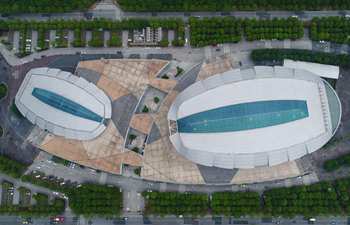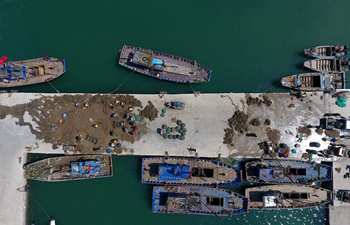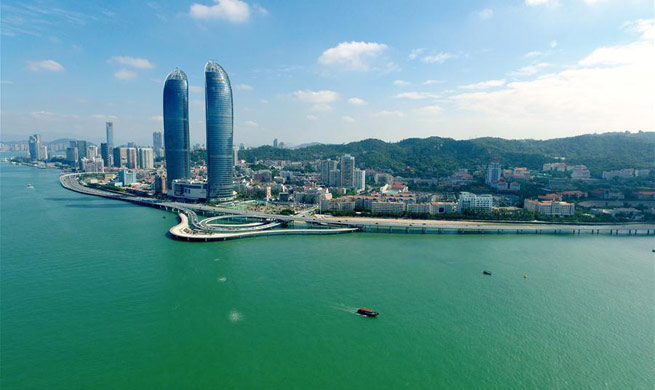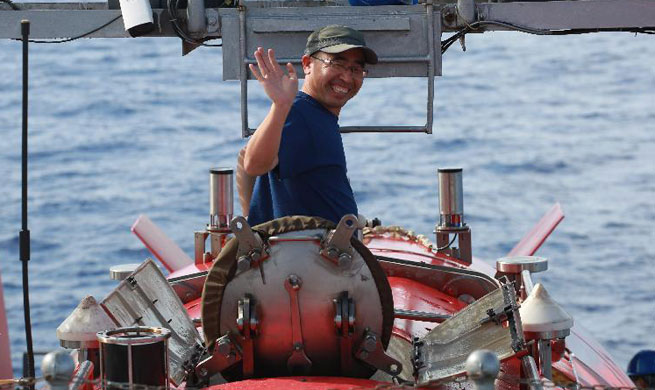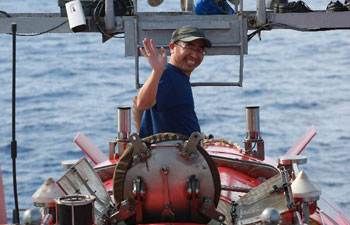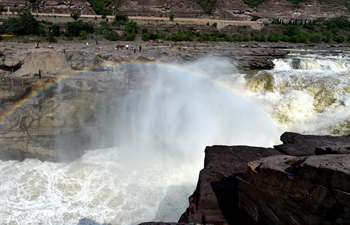by Martin Banks, Zheng Jianghua
BRUSSELS, May 24 (Xinhua) -- On Thursday, fresh from a tour in the Middle East, U.S. President Donald Trump is expected to arrive in Brussels to meet with another, less controversial Donald -- Donald Tusk, president of the European Council, and Jean-Claude Juncker, president of the European Commission.
It will be the first time Trump meet with the heads of EU institutions. After the meeting, he is set to attend a NATO summit Thursday afternoon.
Trump had once called Brussels a "hellhole," cheered for Brexit, and dismissed NATO as "obsolete" -- all of which raised questions in Europe about his commitment to transatlantic alliances.
The notion that the EU may not be able to rely on the cooperation of the U.S. administration is, for some, quickly looking like a new reality. Trump's appointment of several controversial figures to his cabinet highlights this concern.
Several European leaders also rejected Trump's anti-Muslim and much-criticized travel ban amid concern over his commitment to transatlantic values.
The ban, on refugees and citizens of seven Muslim-majority countries, saw European capitals scramble to determine how it would affect their dual nationality citizens.
Despite such pessimism, there are, however, hopes that Trump's visit to Brussels may pave the way for improved EU-U.S. relations in the coming weeks and months.
Senior EU figures are hoping that the visit and face-to-face meetings could be a good opportunity to take the first, tentative steps to heal a rift in relations which, for some, reached a nadir when Washington failed to sign the Transatlantic Trade and Investment Partnership, the landmark transatlantic trade deal.
Prof. Ted Malloch, the man widely tipped to become the next U.S. ambassador to the EU, believed that the time is ripe to re-evaluate key U.S. assumptions about Europe.
This means, he said, that the United States should reappraise its entire relationship with Europe and its future union or disunion.
"The long-held State Department view, since (former Secretary of State) Dulles, has been that the best way to achieve peace in Europe is by uniting it. The Franco-German relationship was at the center of such thinking. No one wants Europe to fail or instantly disintegrate. But the question today is what kind of Europe, and what kind of union, do we want?"he asked.
Trump, more recently, has appeared to soften his tone on the EU.
In a meeting on April 20 with Italian Prime Minister Paolo Gentiloni, he said that a strong Europe was "very important" to him and the United States. Trump also called for "balanced, reciprocal" trade relations with Italy.
Such remarks present a vivid contrast to his earlier statements during the election campaign, when he praised Brexit and labelled the EU a "vehicle for Germany."
Norbert Roettgen, the chair of the German parliament's foreign affairs committee, said Europeans need to propose "projects of common interest" to Trump and preserve "Western unity" on Russia.
However, he admitted, "It is difficult to forge a relationship with this U.S. president."
Failure to build bridges during this week's trip could indirectly benefit Britain, which is seeking new, post-Brexit trade deals, according to Emma McClarkin, British Conservative Party politician and member of the European Parliament.
"The UK and the USA have an opportunity to work together to show that when there is common ground and a willingness to pursue trade negotiations, trade deals can be concluded quickly to benefit both sides." she said.
But Denis Macshane, Britain's Europe minister under Tony Blair, believed it is still very much in the interests of both Brussels and Washington to ensure that the current gap in transatlantic relations does not become a potentially highly damaging schism.
MacShane said, "Trump has u-turned on so many of the extravagant campaign declarations he made about foreign policy. There has to be hope that like every previous occupant of the White House since the 1940s, he will recognize that a partnership between America and Europe makes strategic sense and corresponds to domestic political priorities in the United States."
Macshane noted that Europe is united against the Islamic State after the attacks on Paris, Berlin, Stockholm and now Manchester, while Trump faces endless domestic political problems rather like former President Richard Nixon did.
"But also like Nixon, this does not mean his foreign policy cannot achieve objectives that Europeans seek to support," said MacShane.




